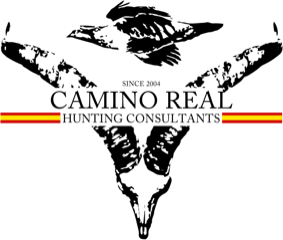Hunting Himalayan Ibex in Pakistan, the roof of the world.
Much more than what we see and hear about.
If there is something characteristic about hunters is how privileged we are for having the opportunity to explore remote territories, places which most human beings will hardly ever visit or even knowing where to locate it on a map, whether it is a small village in the mountains or a country like the one we will be talking about on today’s blog. This allows us to disprove the secrets and false statements which are many times said about certain destinations.
The lack of accurate information or, in other words, the misinformation that we are used to so often through the different media channels, creates a completely wrong perception of what Pakistan is today. During our hunt in “the land in which the pure abound” -the literal translation of what Pakistan means both in Urdu and Persian- we have been able to come across one of the friendliest countries that we have ever been to, leaving aside any sense of unjustified hostility.
People are amongst the most hospitable, grinning, cheerful, well educated, and professional that we have ever seen. In school, both boys and girls share classrooms and play soccer together at 10,800 feet high. Women would go out of their homes with a smile on their faces asking to take pictures with the trophies and no one cares about political conflicts, prevailing a total admiration toward hunters and the desire to progress as a community.
An almost 100% Covid-free country.
Being the 5th largest country in the world in terms of population -with a total of 217 million people- Pakistan has remained almost covid-free. The most sceptical will think that this is caused to the lack of control by the government authorities. Pakistan, however, has imposed strict measures -and they really know how to make themselves clear between its population- which has led to fewer fatal cases than the ones caused by a normal flu in Spain, for instance.
Although this trip was planned for some time ago, the situation forced us to postpone it on several occasions. When we finally decided that it was the right time to go for it, all we needed was a negative PCR test taken within 72 hours before arrival. On top of that, you must download an application to your phone which requires you to answer a few questions, hence, providing your medical record. Upon arrival, everything was very easy, and hunters did not register any issues at all.
Pakistan: the pinnacle of mountain hunting.
Bordered by Afghanistan and Iran to the west, China to the north and India to the east, we could say that Pakistan is the pinnacle of mountain hunting. Here, three of the most breathtaking mountain ranges meet: Karakorams, Himalayas and Hindu Kush. Beyond having the greatest concentration of peaks over 23,000 feet, these territories are home for some of the richest wildlife in the world, making it even more interesting for any hunter.
Himalayan Highway: breathaking views and hanging bridges.
From Islamabad, it is necessary to take a domestic flight to Gilgit which leaves hunters just a few hours away from the hunting area. At this time of the year, it is very common for this flight to be delayed or even cancelled due to bad weather conditions. When this happens, there is no choice but to keep a smile on the face and take it as part of the great adventure. This time, Roberto and Alvaro’s domestic flight was cancelled. Normally, when the hunting trip is meant to be long, we should not worry too much about it as there should be enough time to accomplish a great hunt. However, in a 5-days hunt, there is not much time to be wasted. Under this scenario there was no other alternative but to drive all the way to the hunting area through the Himalayan Highway and its mind-blowing cliffs and hanging bridges, a drive which took approximately 14 hours.
As a curious fact, this is a 745 miles road (1.200 km) opened in 1980 which shares part of what it used to be the Silk Route, the historic trade route that dated from the second century B.C. It was dubbed the Silk Route because of the heavy silk trading that took place from Asia to the Mediterranean, traversing China, India, Persia, Greece, and Italy. It is said that it took over 20 years for the road to be built and 45,000 men. During this time, the legend says that an average of one man per km lost his life.
Once arrived to Gilgit, our hunters stopped for the night as the bumpy road is usually very tiring. Next morning, Roberto and Alvaro were transferred to Sost in a 5 hours’ drive. In Sost, they would meet the government’s game scout. From there, another 4 hours drive would still separate them from Zuwudkhoon, where they would stop again to spend the night before attempting a 4 hours walk to the base camp, a luxury hut with an incredible heating system which marked -18°F inside.
The hunt begins: hard acclimatisation and difficult conditions.
The first hunting day was more about trying to find the ibexes but unfortunately the day did not hold too much action for our hunters. The acclimatisation was being harder than expected and the more than 13,000 feet, together with the short adaptation period led Roberto and Alvaro to feel sick and with a strong headache. The cold temperatures, below -4°F, made the water inside the backpacks freeze and prevented our hunters from drinking every now and then, so important when hunting in the mountains and under these conditions. On top of that, the dry air and the freezing cold made both Roberto and Alvaro burn their throats. Despite such difficult conditions, they tried to keep positive and strong thanks to the rice with chicken that they had for breakfast, lunch, and dinner. I think they even had nightmares with it at night! Notwithstanding the adversity of the first day, there were no signs of ibex, so they had to content themselves with getting in their slipping bags feeling miserable.
Second hunting day: epic climb and first opportunity arises.
After a whole night barely sleeping and feeling sick, the plan for next day was to start hunting at 4:00 am. In order to get to where the guides thought the ibexes would be, required our hunters to climb an almost vertical mountain. Both Roberto and Alvaro have enough mountain experience and are aware of their limitations. However, they also know that bit by bit they can get practically anywhere. The question was that they would have to attempt to go up at night, with a terrible freezing cold -although being equipped with good clothing and material-, and still feeling dizzy.
Thinking that they would feel warm after a few minutes walking, they made the mistake not the put all their clothes on as to avoid the sweat and getting even colder afterwards. It turned out that the cure was worse than the disease. After the first half an hour, the cold in their hands was so unbearable that they had to stop to try and set a fire with some grass, the only inflammable thing available at that altitude. There was no way to warm up their hands so one of the guides offered them to put their hands inside his clothes. This worked out perfectly well and after a few minutes they were ready to continue very cautiously. The burn in their throats from the previous day turned every breath into an awful pain which made them go very slowly. The hunting guides -who were more like snow leopards than human beings- were climbing too fast for the hunters until one of the government scouters threw a rock to one of the guides hitting him on his back, requesting him to go slower and avoid such dangerous terrain.
By the time they all got to the top of the crest, the sun started rising in the horizon and soon after that, just below them, they located a group of ibexes. One of the guides showed himself too much, spooking the animals immediately. Luckily, the biggest billy, a mature 8-year-old ibex, stopped for a few seconds at 508 yards. Next picture resumes perfectly well the outcome of Alvaro’s adventure.
Now Roberto’s turn, speechless.
It was now Roberto’s turn to try and get his ibex. With the shot from the previous day and the many people walking up and down the mountain to retrieve Alvaro’s ibex, forced Roberto to move to another valley. That night, the temperatures dropped even more, and the game scouters were pretty sure where to go to look for ibexes. Again, in complete darkness and tired from the day before, the intention was to be in position at the very top before sunrise.
A magnificent stalk allowed Roberto and his guides to approach two beautiful ibexes at 300 yards. The one which proved to be clearly older than the other one, would not stop feeding for a second. After a few minutes finding the right rest and waiting for the ibex to turn perfectly broadside, Roberto took a perfect shot. Please checkout the following video for full detail.
With the hunt concluded, the party begins.
In Zuwudkhoon’s valley, it is a complete honour to receive hunters coming all the way from the other part of the world. Not only they benefit from the delicious meat of the ibex, which is not that much considering the population in Ispanj -the last village in the valley- but approximately 80% of the income provided by the hunt goes entirely for the local community. Despite being remote areas, totally isolated from the rest of the world, its chiefs are always willing to provide its younger generations a better opportunity.
These are the reasons that explain the great welcome received by our hunters when they arrived to Ispanj once the hunt was over. Groups of people, including women and children would go out to offer them tea and take pictures. Once again, it is surprising to see how mistaken we are in the perception that we have about this beautiful country and its people. After a few pictures with everybody in the village, dinner was served in the chief’s house together with 50 other men, followed by a great party around the success of the hunt. Memories that, for sure, will last forever in our hunters.






We will be back, Insha’Allah!
Regardless of the adversities encountered by Roberto and Alvaro during the hunt, to a large extend driven by the time of the year in which the hunt has taken place, the experience in Pakistan has been, once again, unbeatable. For any mountain hunter, Himalayas means pushing it to another level, offering one of the most -if not the most- beautiful places on Earth. This, together with the friendliness of its people towards us from the very beginning, makes of Pakistan a must for any mountain enthusiast.
We are already planning to go back in December, Insha’Allah! And you, why don’t you join us?
Wishing you all a happy hunting and looking forward to meeting you soon.
Alvaro Mazon (junior).






















